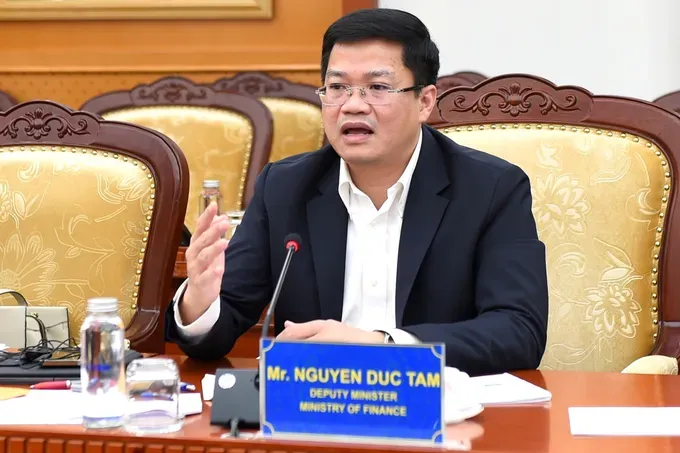
Speaking to the press, Deputy Minister of Finance Nguyen Duc Tam affirmed that the Politburo’s Resolution 68-NQ/TW on private sector development marks a breakthrough in policy mindset and design, setting strong momentum for private economic growth.
According to the Deputy Minister, Vietnam currently has around 5.2 million household businesses — a vast potential base for achieving the national target of two million enterprises. He emphasized that if even a minor segment of these households successfully transitions to enterprise status, the objective is completely attainable.
However, many remain hesitant to convert, for three main reasons. First, the compliance costs between household businesses and enterprises remain significantly different. Second, limited understanding of business regulations and accounting management creates operational barriers. Third, household businesses have long benefited from simpler lump-sum tax and bookkeeping regimes, making formal conversion less attractive, he said.
To address these challenges, Resolution 68 sets a major reform. Accordingly, from 2026, the lump-sum tax system will be abolished, paving the way for greater transparency and incentivizing formalization. Upon becoming enterprises, households will gain access to multiple preferential policies including credit, land, training, technology, and tax incentives in line with the National Assembly’s Resolution 198/2025/QH15 issued May 17, 2025 on special mechanisms to promote private sector growth.
He added that the Ministry of Finance has completed a draft decree guiding Resolution 198 and submitted it to the Government for approval. Once issued, this decree is expected to stimulate new business formation and encourage household-to-enterprise transitions. The ministry’s focus centers on two main groups of solutions:
- Improving the legal and policy framework,
- Implementing practical, on-the-ground support measures.
The Minister also disclosed that the ministry is also urgently revising the Law on Tax Administration and the Personal Income Tax Law, aiming for a simplified, transparent, and easy-to-apply model. This includes streamlined bookkeeping, invoices, and documentation ensuring households face minimal pressure when converting.
In parallel, the ministry is studying the development of a Law on Individual Business, designed to narrow the gap in governance and financial-accounting practices between household businesses and enterprises. The upcoming decree guiding Resolution 198 will feature tangible support such as free accounting software, short training programs, online business registration assistance, and shortened conversion timelines.
To ensure smooth implementation, the ministry is upgrading technical infrastructure for the phase-out of lump-sum taxation starting January 1, 2026, while promoting digital transformation in tax management including e-invoices generated from cash registers, free e-tax systems, and e-invoice software. These measures aim to enhance public service quality, data integration, and tax administration efficiency.
He stressed that public awareness and capacity-building campaigns have also been intensified. The tax sector has taken a hands-on approach, directly guiding household businesses in using e-invoices, tax declarations, and accounting tools.
Finally, the Ministry of Finance is reforming inspection and supervision toward online, risk-based management reducing administrative pressure, improving transparency, and fostering a more supportive environment for enterprises.
According to the Deputy Minister, the greatest challenge facing the private sector today lies in accessing essential resources particularly capital, land, technology, and high-quality human talent. As the Government’s advisory body, the Ministry of Finance plans to focus on several key measures to help small and medium-sized enterprises (SMEs) and innovative startups improve their ability to tap into these resources.
First, priority will be given to reforming tax and fiscal policies to create momentum for SMEs and innovative startups. This includes proposing appropriate corporate income tax incentives for income reinvested in research, development, and innovation activities; exempting or reducing certain fees and charges during the initial stages for technology startups; and applying fast-track deduction and refund mechanisms for enterprises undertaking innovation investment projects.
Second, the Ministry will ensure the effective operation of the SME Development Fund by refining the model of off-budget state financial funds. The goal is to establish the most suitable framework that aligns with state management requirements while meeting the support needs of private enterprises especially SMEs and innovative startups.
Third, efforts will be made to expand access to land. Enterprises will be enabled to lease surplus public assets such as land, factories, and infrastructure under principles of transparency and openness. The implementation of Resolution No. 198 will be accelerated to facilitate SMEs, innovative startups, and supporting industry enterprises in gaining access to land resources within industrial zones and clusters.
























